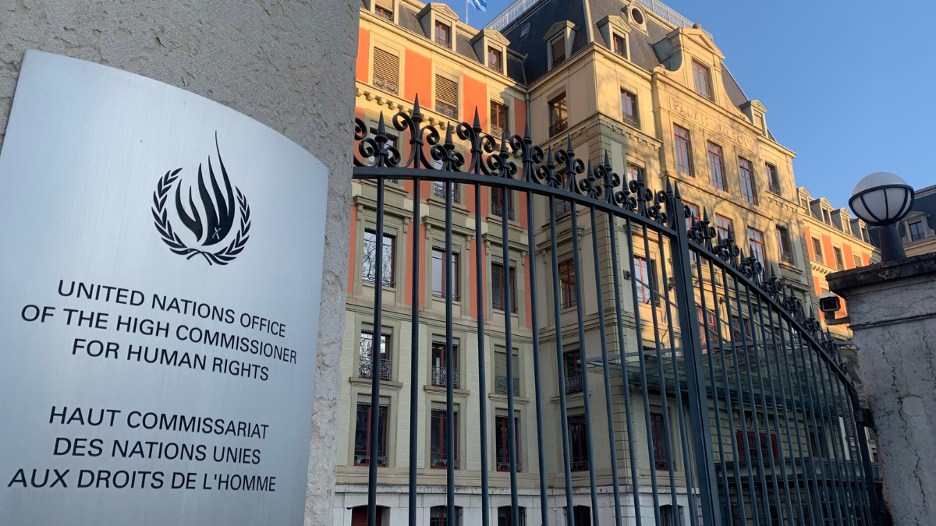PRESS RELEASE: UYGHUR ORGANIZATIONS PRESS FOR FOLLOW-UP ON UN CHINA HUMAN RIGHTS REVIEW

Press Release – For immediate release
16 February 2023
Contact: World Uyghur Congress www.uyghurcongress.org
0049 (0) 89 5432 1999 or [email protected]
The World Uyghur Congress (WUC) and the Uyghur Human Rights Project (UHRP) are calling for renewed action by governments and UN agencies following the review of China by a UN Treaty Body committee this week.
“It was encouraging to see the Committee members ask detailed and important questions on a broad range of issues,” said WUC President Dolkun Isa. “Faced with factual evidence, China once again failed at providing meaningful and comprehensive responses to a UN Treaty Body.”
“Yet another group of independent UN experts have raised serious concerns about the ongoing brutality faced by Uyghurs,” said UHRP Executive Director Omer Kanat. “And once again the Chinese government continues to deny and distract from the factual evidence presented. It’s long past time for the UN system to respond in a more comprehensive way.”
The UN Committee on Economic, Social and Cultural Rights (CESCR) reviewed China’s human rights record in Geneva this week from February 15–16, asking pointed questions on a number of issues, raised in parallel reports by UHRP and WUC, to the Chinese government delegation.
Clear, detailed questions were posed by committee members throughout the session including on forced labour, cultural cleansing, a rapid drop in birth rates, religious freedom, and arbitrary detention. The Chinese delegation issued blanket denials of the evidence from civil society and UN bodies or ignored repeated questions from committee members for clarification.
Several committee members asked the Chinese delegation about cultural destruction in East Turkistan. Citing UHRP research, committee member Preeta Saran asked: “How [does the government] protect cultural rights while researchers have documented the destruction of 1000s of Uyghur mosques and shrines, including the 800-year-old Keriya Mosque, destroyed in 2018?”
Uyghur forced labour was a key focus for committee members during the review. China country rapporteur, Michael Windfuhr, said “The idea that this is long-term, forced labour is very obvious.” Other members posed questions to the committee, including Ludovic Hennebel, who asked “What are the specific measures taken by the state to end forced labour, facilitate access to justice for victims, and provide them with reparation measures?”
Other questions reflected information provided by the Coalition to End Forced Labour in the Uyghur Region, including from Mr. Hennebel, who asked “What measures are being taken to address cases of forced labour involved in automation programs, in particular in the textiles and clothing [industry]?”
Questions also related to declines in birth rates, sterilizations, and IUD placements. Asraf Caunhye asked the Chinese delegation to “provide data disaggregated by ethnicity and region, including Hotan and Kashgar in particular, on the number of abortions and sterilizations carried out between 2016 and 2022.” Mr. Caunhye also asked the delegation to provide reasons for the decline in birth rates in Hotan and Kashgar in particular.
Regarding cultural rights, Mr. Caunhye stated that “Researchers documented with satellite imagery the destruction of mosques, sanctuaries, and even Uyghur cemeteries,” and asked, “How would you intend to protect cultural rights in that regard when […] there has been manifest proof of this destruction?”
We continue to call for action from governments, UN agencies, and international organizations:
- The UN Human Rights Council to take up the issue in a Special Session or Urgent Debate with the aim of establishing a Commission of Inquiry (COI) to independently examine the treatment of Uyghurs and other Turkic peoples;
- The UN Special Procedures to consider evidence presented by the Committee and respond with recommendations for the UN and the international community;
- The UN Office on Genocide Prevention to immediately conduct an assessment of the risks of atrocities—including genocide and crimes against humanity—targeting Uyghurs and other Turkic peoples, and to alert relevant actors and advocate for a proportionate response;
- The ILO to take note of the upcoming Concluding Observations, include additional evidence of forced labour in its Committee of Experts annual report, and for delegates at the International Labour Conference to lodge a complaint against China for failure to uphold its obligations;
- UNESCO to urgently investigate cases of destruction or marginalisation of natural and cultural heritage, including UNESCO-listed heritage (Muqam, Karez well system, Manas, Meshrep, and the Tianshan mountain range); and
- The global business community to immediately cut all ties with entities assisting the government to carry out the atrocities, especially the programs of high-tech surveillance and state-imposed forced labour.

